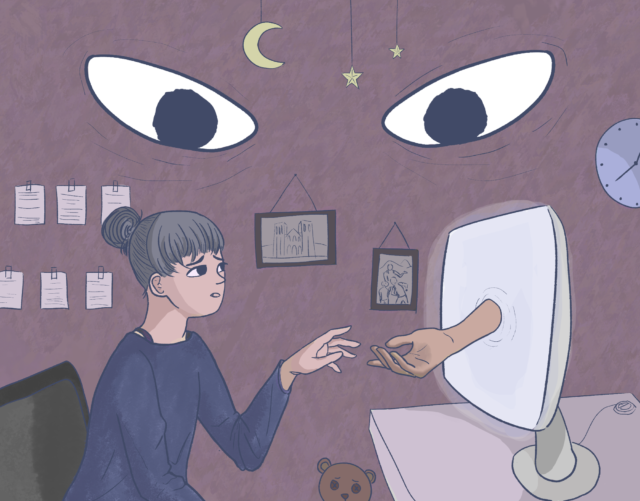On the national Centers for Disease Control and Prevention website, you will find many tabs under “Coronavirus Disease 2019 (COVID-19).”
These include symptoms, testing, ways to prevent getting sick and more to help Americans care for their physical health. But the fourth tab from the top, “Daily Life & Coping,” deals with something different – mental health.
In a time when disease and acts of racism have increased Americans’ stress and anxiety levels, the CDC seems to understand that mental health is just as essential to maintain as physical health.
UCLA, however, does not.
The Daily Bruin reported May 7 that UCLA Counseling and Psychological Services witnessed a 65% to 70% decrease in students seeking services for the first time between finals week of winter quarter and week four of spring quarter. While some optimists may claim this is a result of decreased need for mental health support within the Bruin community, a recent survey conducted by Active Minds found that 80% of college students believe the pandemic has negatively affected their mental health.
So while CAPS has made great strides since the beginning of online instruction by removing appointment limits, it must take greater action to accommodate students who work as essential employees or live in different time zones. With the continuation of nationwide protests and ongoing spikes in coronavirus infections possibly resulting in prolonged stay-at-home orders, it’s imperative CAPS is made available for all students.
This means lengthening hours so students aren’t punished if they aren’t available to complete an intake during the limiting 8 a.m. to 4 p.m. time frame, as well as streamlining current services to better accommodate student needs by creating an online intake and appointment generator. Now that online instruction has been extended into the next academic year for most students, these reforms must last well into the future.
Nicole Green, executive director of CAPS, said moving a system as large as CAPS online in such a short period of time was one of the biggest challenges the now telehealth platform faced.
“We have not had to cancel appointments or, for the most part, we have not had to really suspend our services,” Green said. “(However,) there have been more limitations to the service because of regulations about providing care to students who are out-of-state.”
Green also said unless a student was already being treated prior to leaving California, CAPS could only refer out-of-state and international students to other treatment facilities.
If UCLA is unwilling to provide the proper support for increased hours, then CAPS must adopt measures that make the services they currently provide more efficient.
Students should be allowed to answer an online survey about their mental health instead of calling an individual who will click the same buttons on a different screen. The Campus Assault Resources and Education office, for example, provides an online form for students who seek to request an appointment with an advocate.
Issues surrounding mental health services are unfortunately not unique to UCLA, as students across the nation face similar challenges in the wake of COVID-19. And it would seem CAPS is failing nationwide.
Juliette Palermo, a Class of 2020 graduate from the University of Pennsylvania, attempted to use Penn’s Counseling and Psychological Services but was frustrated by the initial intake process, an experience reminiscent of the disappointingly inefficient telehealth services offered by UCLA CAPS, signaling that this is also a nationwide issue as much as it is a UCLA-specific problem.
“I would say that people are very weary of (Penn CAPS). It doesn’t have a good reputation on campus,” Palermo said. “I think if (CAPS) can’t offer (long-term treatment) for whatever reason, then they need to have more transparency about the types of cases they’re able to treat.”
The stigmatization that Palermo experienced extends beyond the mental health industry and speaks to students who are now stuck in households with family members who may have misguided perceptions about mental illness.
Schuyler Poh, a third-year public affairs student at UCLA who has used CAPS’ in-person services before, said appointment wait times are a problem but is hesitant to support online substitutes.
“I don’t really think that an intake can successfully be done through a form online,” Poh said. “I think that the person who’s conducting your intake is not only thinking about your mental health needs, but kind of getting a sense of how you speak about your feelings.”
It is true CAPS hasn’t been entirely negligent in addressing mental health concerns during the pandemic. CAPS uploaded stress- and anxiety-management materials to its main website in response to the COVID-19 pandemic. However, these changes can’t be deemed substantial enough unless all students are able to access appointments and can properly apply these techniques.
A mission this bold needs the support of the university. Taking the initiative to seek mental health treatment during these unprecedented times is difficult enough for students. UCLA could make this process easier by ensuring students can complete their intake as efficiently and quickly as possible.
Because it’s time for them to start considering and treating students’ mental health as the basic need that it is.

